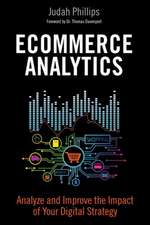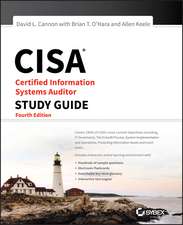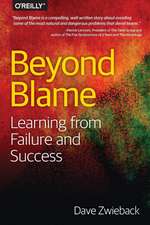Evaluation and Decision Models: A Critical Perspective: International Series in Operations Research & Management Science, cartea 32
Autor Denis Bouyssou, Thierry Marchant, Marc Pirlot, Patrice Perny, Alexis Tsoukias, P. Vinckeen Limba Engleză Paperback – 26 oct 2012
| Toate formatele și edițiile | Preț | Express |
|---|---|---|
| Paperback (1) | 944.19 lei 6-8 săpt. | |
| Springer Us – 26 oct 2012 | 944.19 lei 6-8 săpt. | |
| Hardback (1) | 950.96 lei 6-8 săpt. | |
| Springer Us – 30 noi 2000 | 950.96 lei 6-8 săpt. |
Din seria International Series in Operations Research & Management Science
- 20%
 Preț: 331.25 lei
Preț: 331.25 lei - 9%
 Preț: 696.06 lei
Preț: 696.06 lei - 20%
 Preț: 570.62 lei
Preț: 570.62 lei - 18%
 Preț: 1132.02 lei
Preț: 1132.02 lei - 18%
 Preț: 773.72 lei
Preț: 773.72 lei -
 Preț: 170.40 lei
Preț: 170.40 lei - 17%
 Preț: 459.35 lei
Preț: 459.35 lei - 17%
 Preț: 360.48 lei
Preț: 360.48 lei -
 Preț: 263.40 lei
Preț: 263.40 lei - 24%
 Preț: 905.31 lei
Preț: 905.31 lei - 17%
 Preț: 460.09 lei
Preț: 460.09 lei - 17%
 Preț: 459.35 lei
Preț: 459.35 lei - 20%
 Preț: 631.58 lei
Preț: 631.58 lei - 13%
 Preț: 480.01 lei
Preț: 480.01 lei - 18%
 Preț: 738.28 lei
Preț: 738.28 lei - 18%
 Preț: 1225.94 lei
Preț: 1225.94 lei - 18%
 Preț: 948.92 lei
Preț: 948.92 lei - 18%
 Preț: 703.88 lei
Preț: 703.88 lei - 18%
 Preț: 957.44 lei
Preț: 957.44 lei - 15%
 Preț: 651.84 lei
Preț: 651.84 lei - 20%
 Preț: 336.21 lei
Preț: 336.21 lei - 15%
 Preț: 641.03 lei
Preț: 641.03 lei -
 Preț: 404.29 lei
Preț: 404.29 lei - 18%
 Preț: 950.21 lei
Preț: 950.21 lei - 15%
 Preț: 649.06 lei
Preț: 649.06 lei - 18%
 Preț: 725.75 lei
Preț: 725.75 lei -
 Preț: 394.12 lei
Preț: 394.12 lei - 18%
 Preț: 951.47 lei
Preț: 951.47 lei - 15%
 Preț: 639.59 lei
Preț: 639.59 lei - 18%
 Preț: 773.06 lei
Preț: 773.06 lei - 18%
 Preț: 889.29 lei
Preț: 889.29 lei - 15%
 Preț: 655.60 lei
Preț: 655.60 lei - 15%
 Preț: 640.06 lei
Preț: 640.06 lei
Preț: 944.19 lei
Preț vechi: 1151.45 lei
-18% Nou
Puncte Express: 1416
Preț estimativ în valută:
180.73€ • 196.38$ • 151.91£
180.73€ • 196.38$ • 151.91£
Carte tipărită la comandă
Livrare economică 21 aprilie-05 mai
Preluare comenzi: 021 569.72.76
Specificații
ISBN-13: 9781461356318
ISBN-10: 1461356318
Pagini: 288
Ilustrații: VIII, 274 p.
Dimensiuni: 155 x 235 x 15 mm
Greutate: 0.41 kg
Ediția:2000
Editura: Springer Us
Colecția Springer
Seria International Series in Operations Research & Management Science
Locul publicării:New York, NY, United States
ISBN-10: 1461356318
Pagini: 288
Ilustrații: VIII, 274 p.
Dimensiuni: 155 x 235 x 15 mm
Greutate: 0.41 kg
Ediția:2000
Editura: Springer Us
Colecția Springer
Seria International Series in Operations Research & Management Science
Locul publicării:New York, NY, United States
Public țintă
ResearchCuprins
1 Introduction.- 1.1 Motivations.- 1.2 Audience.- 1.3 Structure.- 1.4 Outline.- 1.5 Who are the authors?.- 1.6 Conventions.- 1.7 Acknowledgements.- 2 Choosing on the basis of several opinions.- 2.1 Analysis of some voting systems.- 2.2 Modelling the preferences of a voter.- 2.3 The voting process.- 2.4 Social choice and multiple criteria decision support.- 2.5 Conclusions.- 3 Building and aggregating evaluations.- 3.1 Introduction.- 3.2 Grading students in a given course.- 3.3 Aggregating grades.- 3.4 Conclusions.- 4 Constructing measures.- 4.1 The human development index.- 4.2 Air quality index.- 4.3 The decathlon score.- 4.4 Indicators and multiple criteria decision support.- 4.5 Conclusions.- 5 Assessing competing projects.- 5.1 Introduction.- 5.2 The principles of CBA.- 5.3 Some examples in transportation studies.- 5.4 Conclusions.- 6 Comparing on several attributes.- 6.1 Thierry’s choice.- 6.2 The weighted sum.- 6.3 The additive value model.- 6.4 Outranking methods.- 6.5 General conclusion.- 7 Deciding automatically.- 7.1 Introduction.- 7.2 A System with Explicit Decision Rules.- 7.3 A System with Implicit Decision Rules.- 7.4 An hybrid approach for automatic decision-making.- 7.5 Conclusion.- 8 Dealing with uncertainty.- 8.1 Introduction.- 8.2 The context.- 8.3 The model.- 8.4 A didactic example.- 8.5 Conclusions.- 9 Supporting decisions.- 9.1 Preliminaries.- 9.2 The Decision Process.- 9.3 Decision Support.- 9.4 Conclusions.- Appendix A.- Appendix B.- 10 Conclusion.- 10.1 Formal methods are all around us.- 10.2 What have we learned?.- 10.3 What can be expected?.













